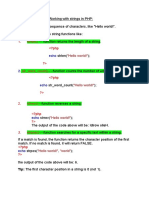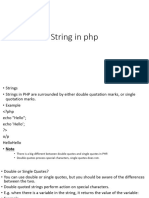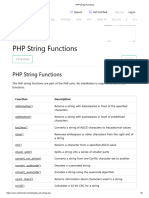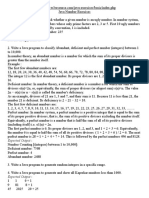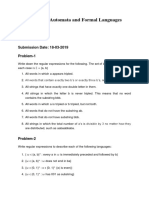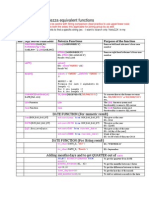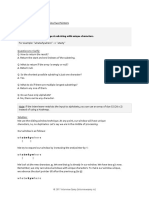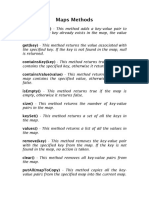0% found this document useful (0 votes)
60 views39 pagesString Functions
The document provides an overview of various PHP string functions, including chr(), ord(), strtolower(), strtoupper(), strlen(), and others, along with examples of their usage. Each function serves a specific purpose, such as converting case, trimming whitespace, comparing strings, and manipulating string content. The document serves as a reference for advanced web development techniques using these string functions.
Uploaded by
agauubaalCopyright
© © All Rights Reserved
We take content rights seriously. If you suspect this is your content, claim it here.
Available Formats
Download as PPTX, PDF, TXT or read online on Scribd
0% found this document useful (0 votes)
60 views39 pagesString Functions
The document provides an overview of various PHP string functions, including chr(), ord(), strtolower(), strtoupper(), strlen(), and others, along with examples of their usage. Each function serves a specific purpose, such as converting case, trimming whitespace, comparing strings, and manipulating string content. The document serves as a reference for advanced web development techniques using these string functions.
Uploaded by
agauubaalCopyright
© © All Rights Reserved
We take content rights seriously. If you suspect this is your content, claim it here.
Available Formats
Download as PPTX, PDF, TXT or read online on Scribd
/ 39





























